Table of content
Jackfruit, a tropical giant known for its spiky exterior and sweet, aromatic flesh, is a beloved ingredient in culinary traditions across Asia, Africa, and beyond. However, encountering an opened jackfruit that is underripe can be disappointing. Unlike bananas or avocados, which soften predictably, jackfruit requires specific care to reach its full potential. This article explores actionable strategies to ripen an opened jackfruit, ensuring its starchy, firm flesh transforms into the tender, flavorful delight it is meant to be.
Understanding the Challenge: Why Unripe Jackfruit Matters
Unripe jackfruit, often referred to as “young” or “green” jackfruit, has a crisp texture and neutral flavor, making it a popular meat substitute in vegan dishes. However, when harvested prematurely or stored improperly, even varieties intended for ripening may fail to develop sweetness. If your jackfruit has been cut open prematurely, its latex-rich sap can harden, complicating the ripening process. The key lies in creating an environment that mimics the tropical conditions where this fruit thrives—warmth, humidity, and ethylene exposure.
Assessing the Jackfruit’s Ripeness
Before proceeding, evaluate the fruit’s current state:
- Color: Ripe jackfruit skin transitions from green to yellowish-brown. If the exterior remains predominantly green, it is likely underripe.
- Texture: Gently press the flesh. Unripe segments feel firm and rubbery, while ripe ones yield slightly.
- Smell: A ripe jackfruit emits a sweet, fruity aroma. If it smells neutral or grassy, it needs more time.
- Pods: Check individual bulbs. Ripe pods separate easily from the core and have a golden hue.
Pro Tip: Wear gloves when handling jackfruit—its latex sap is sticky and difficult to remove.
Methods to Ripen an Opened Jackfruit
A. Natural Ripening with Ethylene Gas
Ethylene, a natural plant hormone, accelerates ripening. To harness this:
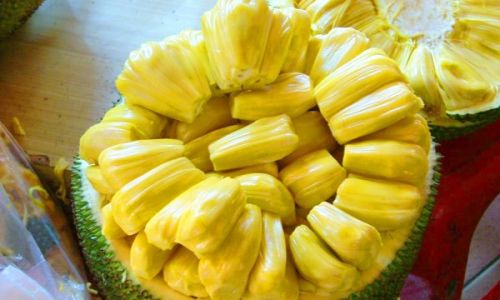
- Wrap the Jackfruit: Place the opened fruit in a breathable cloth or paper bag. Add ethylene-producing fruits like bananas, apples, or mangoes.
- Seal and Store: Keep the bag at 75–85°F (24–29°C). Avoid direct sunlight, which can cause spoilage.
- Monitor Daily: Check for softening and aroma. This method may take 3–7 days, depending on the fruit’s initial maturity.
Expert Insight: Overripe bananas emit more ethylene, making them ideal catalysts.
B. Heat and Humidity Control
Jackfruit thrives in warm climates. Replicate this by:
- Oven Method: Preheat the oven to the lowest setting (around 100°F/38°C). Place the jackfruit on a baking sheet lined with parchment paper. Leave the oven slightly ajar to prevent cooking. Check every 2 hours for texture changes.
- Dehydrator Technique: Use a food dehydrator set to 95–105°F (35–40°C). This gentle heat encourages enzymatic activity without dehydrating the flesh.
- Steaming: Lightly steam the jackfruit segments for 2–3 minutes, then pat dry. This softens the flesh but may reduce sweetness.
Caution: High heat can alter flavor; prioritize low, consistent warmth.
C. Fermentation (Advanced Technique)
For a tangy twist, fermentation can break down starches:
- Salt Brine: Submerge jackfruit pods in a 2% saltwater solution. Store in an airtight container at room temperature for 24–48 hours.
- Lacto-Fermentation: Add whey or probiotic starter to the brine. Ferment for 3–5 days, burping the container daily to release gas.
- Rinse and Use: Drain the pods, rinse thoroughly, and incorporate into salads or salsas.
Note: Fermentation imparts a sour note, so this method suits savory dishes.
D. Freeze-Thaw Cycle
Freezing disrupts cell walls, softening texture:
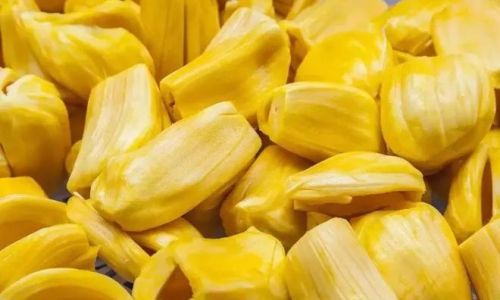
- Freeze: Place jackfruit segments in a sealed freezer bag. Freeze for 24 hours.
- Thaw: Transfer to the refrigerator for 12 hours. The flesh will soften but remain less sweet.
- Enhance Flavor: Marinate thawed pods in a mixture of coconut sugar, lime juice, and spices to mimic ripeness.
Creative Culinary Solutions for Unripe Jackfruit
If ripening proves unsuccessful, repurpose the fruit:
A. Savory Dishes
- Curries and Stews: Unripe jackfruit’s firm texture holds up well in spicy curries. Simmer in coconut milk with turmeric, cumin, and chili for an Indian-style Kathal Curry.
- Stir-Fries: Sauté with garlic, ginger, and soy sauce for a vegan “pulled pork” alternative.
- Tacos: Shred the flesh and season with smoked paprika and lime juice.
B. Crispy Snacks
- Jackfruit Chips: Thinly slice the flesh, coat with rice flour and spices, then bake or air-fry until crisp.
- Tempura: Dip segments in a light batter and fry until golden.
C. Flour Substitute
- Jackfruit Flour: Dehydrate unripe pods, then grind into a gluten-free flour. Use in breads or pancakes for a mild, nutty flavor.
Storage and Long-Term Preservation
Proper storage prevents further under-ripening:
- Refrigeration: Place ripened segments in an airtight container. Consume within 3–5 days.
- Freezing: Blanch pods in boiling water for 2 minutes, then freeze for up to 6 months.
- Canning: Pressure-can jackfruit in syrup for year-round use.
Troubleshooting Common Issues
A. The Jackfruit Won’t Soften
- Cause: Premature harvest or prolonged cold storage.
- Solution: Combine heat and ethylene methods. If still unyielding, use in savory dishes.
B. Mold or Off-Odors
- Action: Discard immediately. Unripe jackfruit is prone to spoilage if exposed to moisture.
C. Excessive Latex
- Tip: Apply coconut oil to hands and tools to reduce stickiness.
Expert Tips for Success
- Patience is Key: Jackfruit ripens slower than bananas; avoid rushing the process.
- Taste Test: Sample a pod daily to gauge progress.
- Repurpose Wisely: Even if not sweet, unripe jackfruit is versatile in the kitchen.
Conclusion
An opened, unripe jackfruit need not spell disaster. By leveraging ethylene gas, controlled heat, or creative cooking techniques, you can salvage this tropical treasure. Whether you opt for natural ripening or embrace its starchy potential in savory recipes, the key lies in understanding the fruit’s unique biology. With experimentation and a touch of culinary ingenuity, even an underripe jackfruit can become a centerpiece of your next meal.
Final Thought: Next time you encounter an unripe jackfruit, view it as an opportunity to explore new flavors and techniques. After all, the journey from firm to fork is as rewarding as the destination itself.
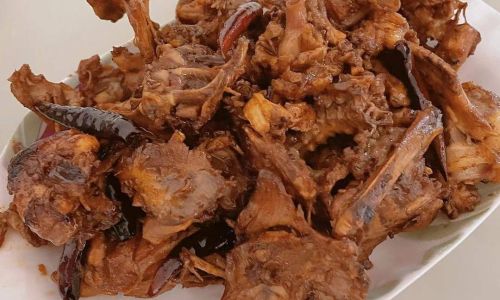
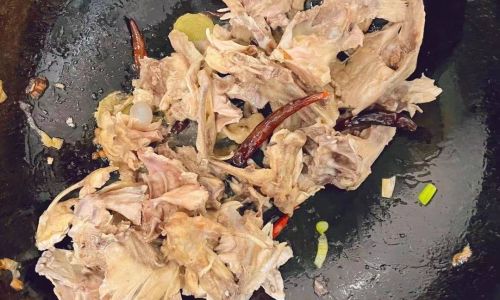


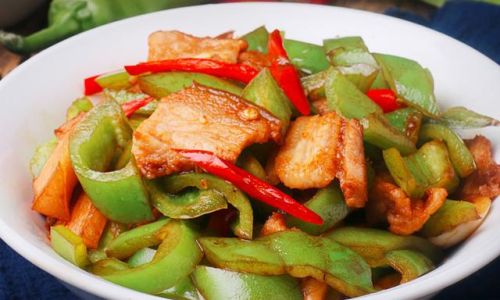
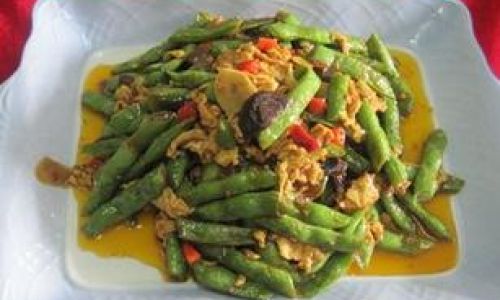
0 comments